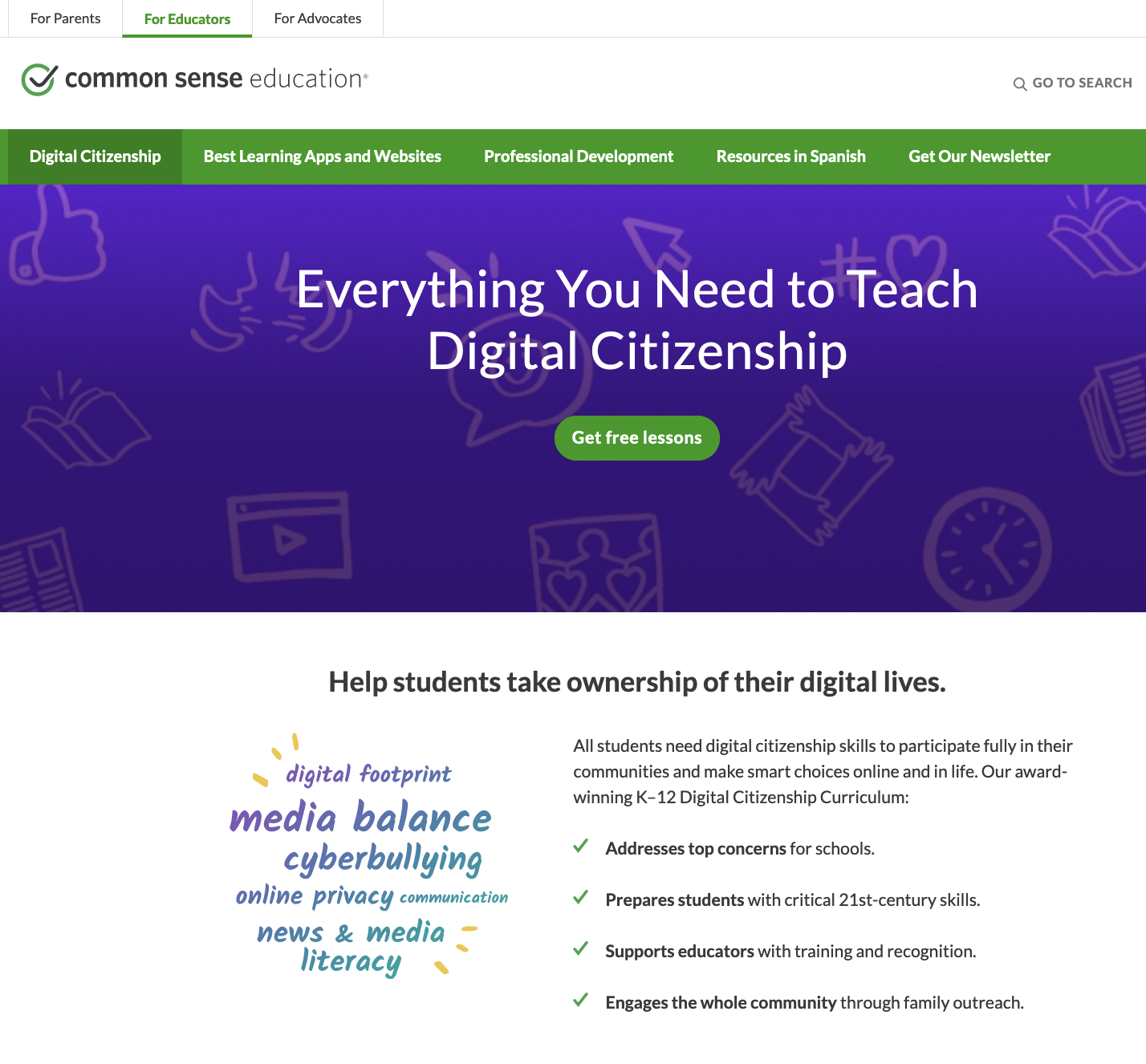From Digital Citizenship to Critical Digital Citizenship
What is traditional digital citizenship?
Technology is everywhere, and civic life is no exception. We are civic actors in both online and offline spaces, in ways which frequently blend the two experiences together. However, technology is not a neutral influence, and we often fail to grapple with how the ramifications of its growing presence in our lives impacts our civic intentions or actions. Schools—which already bear the responsibility of civic education—need support in addressing this new civic landscape. Digital Citizenship curricula seem poised to meet that need, but they tend to focus on teaching young people to behave in safe and respectful ways online. By emphasizing personal safety and polite standards of behavior, digital citizenship curricula beg students to guard themselves, fall in line, and play by the rules. Civic education which approaches digital citizenship this way sustains those already in power, and maintains oppressive systems. If we want students to show up as civic actors, rather than as civic parrots, we must look to critical digital citizenship.
The following articles offer further critiques on traditional digital citizenship curricula:
As you can see in Common Sense Media’s digital citizenship topics above (digital footprint, media balance, cyberbullying, online privacy, communication, and news & media literacy), the most popular digital citizenship curriculum “have a tenuous connection to democratic citizenship and might be more accurately branded as supports for digital literacy or online safety. Of course, curriculums that teach individual responsibility in digital realms are important… However, lessons that focus primarily on such matters of safety and appropriateness do little to prepare students to practice strong versions of democracy by taking on active roles in governance. So how can educators prepare students for different kinds of citizenship in digital spaces?” (Krutka & Carpenter, 2017, p. 52).
Watch two youth-produced documentaries and consider the following questions:
What do you see, think, and wonder about the youth’s learning?
How are youth enacting digital citizenship in these videos?
Both of these youth-produced documentaries are from the Young People's Race, Power, and Technology (YPRPT). Learn more about YPRPT below.
What is Critical Digital Citizenhip?
The assumptions and prejudices of people and groups are often intertwined with inequalities in societies. Digital citizenship, therefore, must be inspired by civic resistance that challenge the systems that maintain power and inequality. Critical digital citizenship offers youth powerful ways to confront oppression and use digital media to express their politics and promote civic engagement. Youth should have opportunities to challenge inequality, learn from the perspectives or minoritized or targeted groups, and take tangible steps toward reducing inequality and injustice. Critical digital citizenship curricula becomes a means for educators and students to use, and interrogate, technology in order to effect systemic change. Based in critical pedagogy, the Young People's Race, Power, and Technology (YPRPT) project is an example of youth civic expression, one that can help educators and scholars reconsider how critical digital citizenship can move toward a more just world.
The Young People's Race, Power, and Technology (YPRPT) Project
The Young People's Race, Power, and Technology (YPRPT) project is an out-of-school initiative that uses a research-based curriculum to empower high school-aged youth, mostly from historically marginalized groups, to explore, critique, and reimagine technology. The program integrates technology “under the hood” investigations with social justice topics, documentary filmmaking, and relationship building among participants. Teams from local high schools, community-based organizations, and faith-based groups partner with Chicagoland activists and artists plus faculty and students from Northwestern University's TREE Lab to complete a 19-week curriculum and produce a short documentary film about a technology-related issue of the youth's choosing.
AERA 2022 paper and presentation
This #CriticalDigitalCitizenship page emerged from a presentation created for the 2022 American Educational Research Association (AERA) by Charles W. Logan (@charleswlogan), Dr. Amy L. Chapman (@Chapmaab), Dr. Daniel G. Krutka (@dankrutka), and Dr. Swati Mehta (@swati1201) with influence from the YPRPT work of Dr. Sepehr Vakil (@sepehrvakil).
You can read the short AERA paper titled, “In that system, we all look like thieves”: Developing Young People’s Critical Digital Citizenship or view the presentation slides here.

